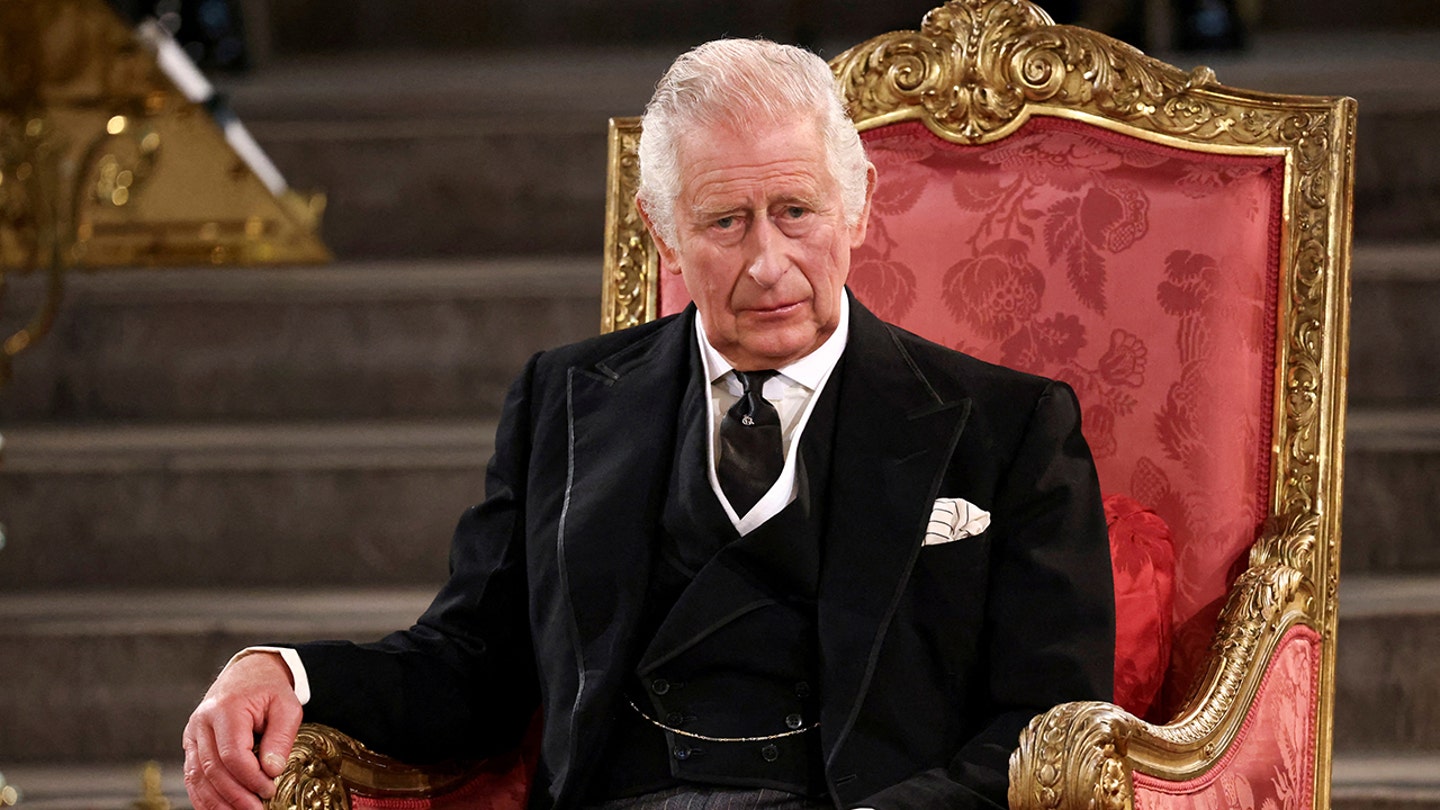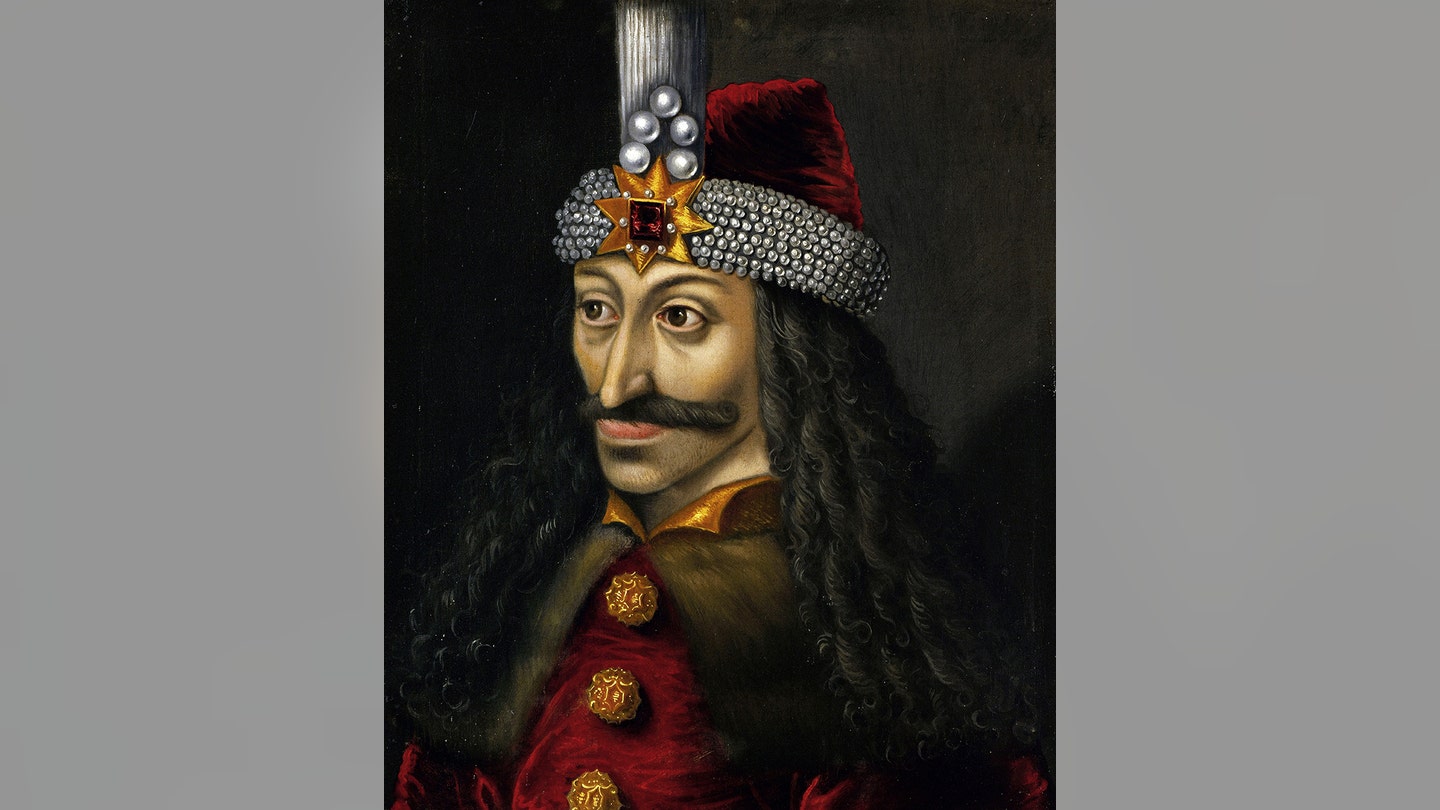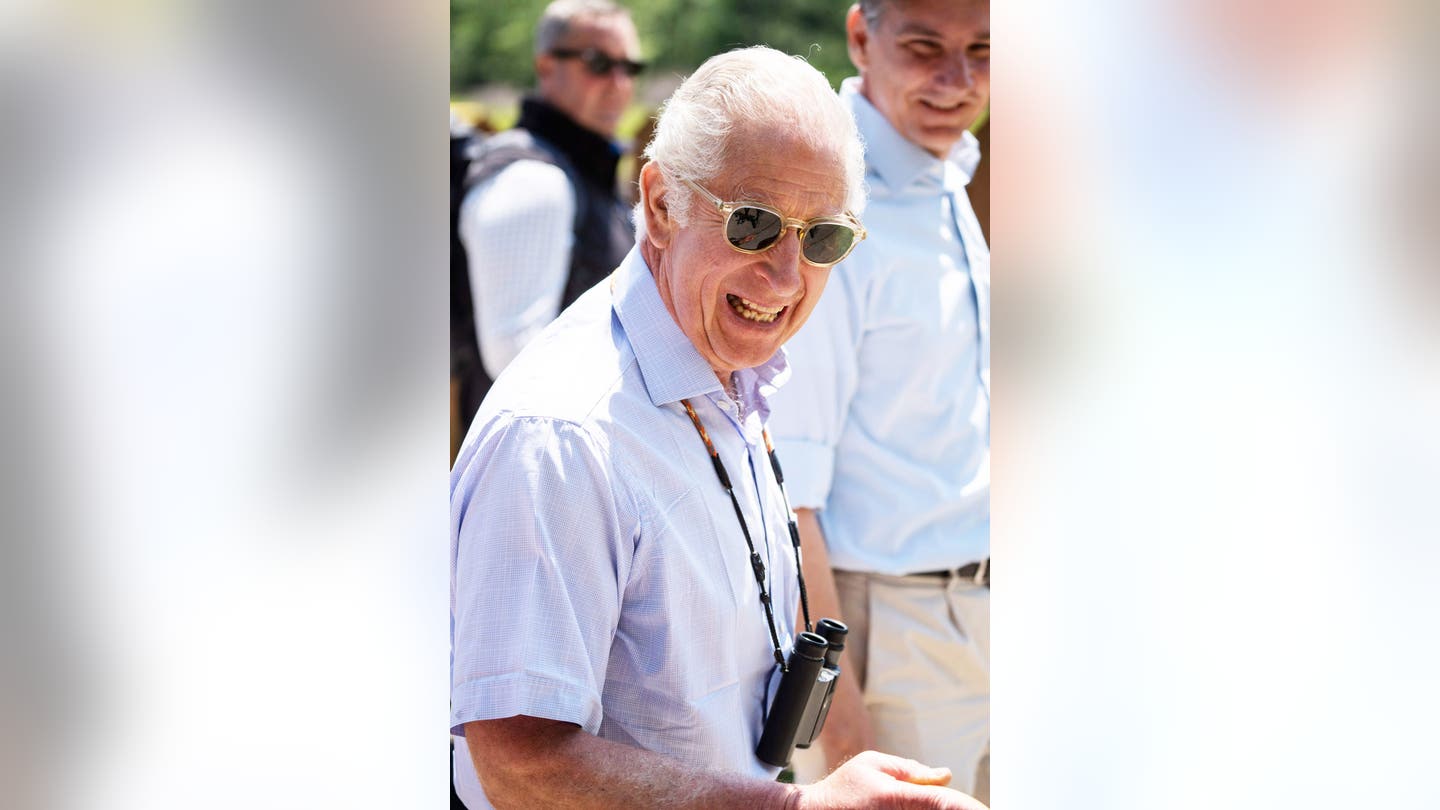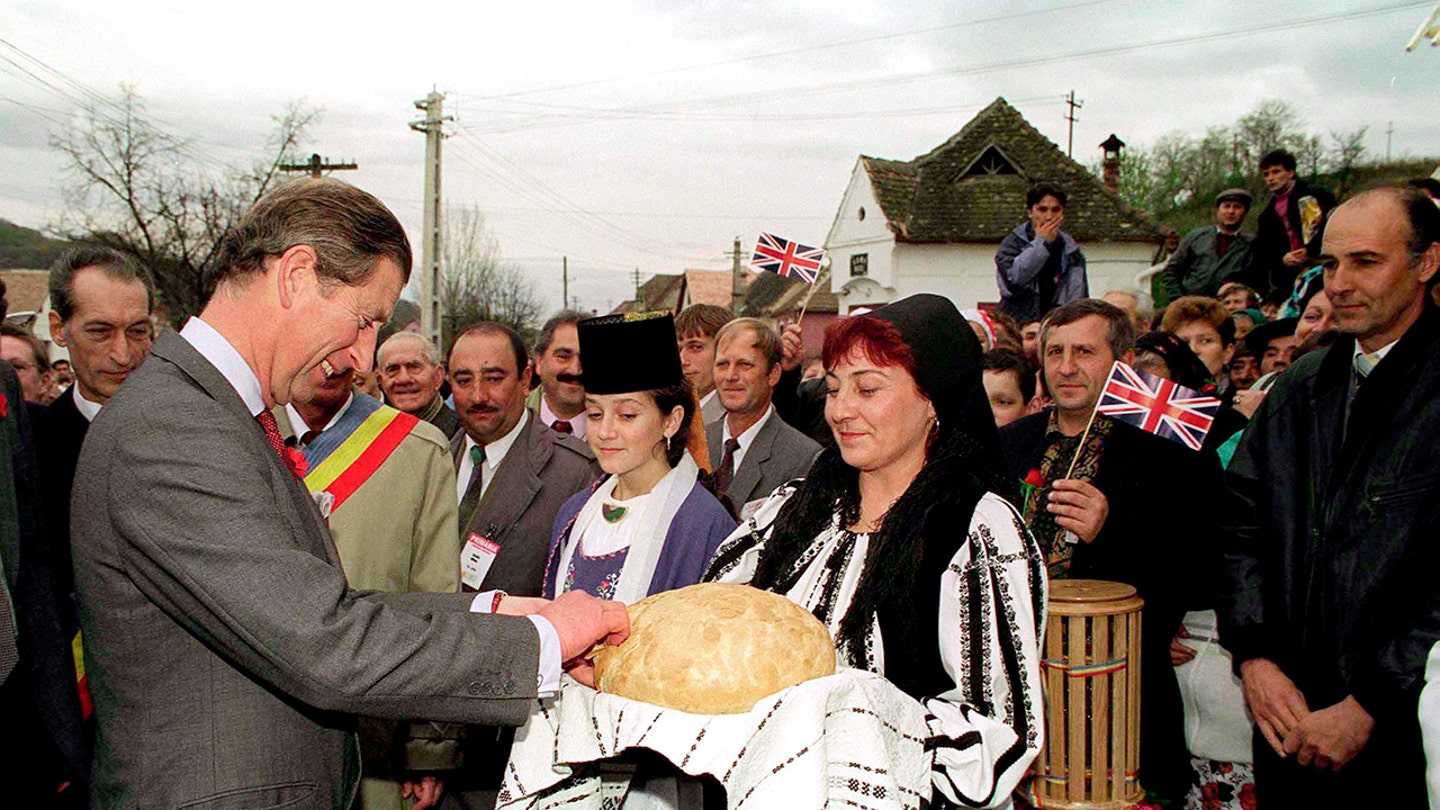NEWYou now have the option to listen to news articles!
King Charles III is known for his fascination with royal history.
Actor Luke Evans penned a memoir titled “Boy from the Valleys: My Unexpected Journey,” which was released this year. In the book, the 46-year-old recounted an encounter with former Prince Charles at a gala dinner in London in 2014.
During the event, Evans discovered that the British royal has a connection to the historical figure, Dracula.
KING CHARLES’ ALARMING BLOODSHOT EYE RAISES HEALTH CONCERN DURING FRENCH STATE VISIT
The former Prince Charles meets actor Luke Evans at a reception for the Prince’s Trust Invest in Futures Gala Dinner at The Savoy Hotel on February 6, 2014, in London, England. (Chris Jackson – WPA Pool/Getty Images)
Evans described how Prince Charles, now 76, was intrigued when he mentioned his role in the film “Dracula Untold” as Vlad Tepes III. This led to a revelation that Charles is actually related to Vlad Tepes.

Romania is one of King Charles’s favorite destinations. (HENRY NICHOLLS/POOL/AFP via Getty Images)
Charles proceeded to share details of his lineage dating back to the 1400s with Evans, revealing his ownership of properties in Romania where Vlad once ruled.

Portrait of Vlad, Prince of Wallachia. He was posthumously dubbed Vlad the Impaler due to his practice of impaling his enemies. (Universal History Archive/UIG via Getty Images)
Evans found the story fascinating, and Charles acknowledged that it is not widely known. The king’s affinity for Romania is evident in his frequent visits to his properties in the country.
“The most incredible story,” Evans remarked. “Yes, and not a lot of people know it,” Charles replied before moving on.
“I noticed he had stayed a little longer with me than he had with other guests, probably because we had this fascinating thing to talk about,” Evans wrote.
The Prince’s Trust, now known as the King’s Trust, was established by Charles in 1976 to support disadvantaged youth in the U.K. Evans served as an ambassador for the charity.

Britain’s King Charles III is seen here on a solo trip to Romania in 2023. (MIHAI BARBU/AFP via Getty Images)
Royal expert Ian Pelham Turner revealed that Charles’ connection to Romania goes back years, with the king often visiting his holiday home in the country.
“Perhaps all those wishing to oppose or suppress his wishes should have second thoughts, fearing his ancestral blood,” Turner humorously commented.
British royals expert Hilary Fordwich shared that Charles enjoys sharing the fun fact about his heritage, with Romanian officials even playfully referring to him as the ‘Prince of Transylvania.’
In 2023, Charles expressed his love for Romania during a reception at Cotroceni Palace, highlighting his strong ties to the nation. The visit marked his first trip abroad since ascending to the throne that year.

The former Prince Charles being offered bread during a visit to Romania. (Tim Graham Photo Library via Getty Images)
Charles’ deep connection to Romania is evident in his annual trips to the country, where he owns multiple properties. He values the privacy and tranquility that Romania offers, with his countryside home serving as a retreat from modern amenities.
CLICK HERE TO GET THE FOX NEWS APP

View of the fortified church in Viscri, the Transylvanian village where Britain’s King Charles III owns a property, 260 kilometers north of Bucharest, on June 4, 2023. (MIHAI BARBU/AFP via Getty Images)
LIKE WHAT YOU’RE READING? CLICK HERE FOR MORE ENTERTAINMENT NEWS
The article also mentioned that there is a “small hi-fi player with CDs” in the drawing room.
In 2017, the mayor of Alba Iulia extended an invitation to Charles to accept the title of Prince of Transylvania. It is unclear if the offer still stands.
Stephanie Nolasco covers entertainment at Foxnews.com.
A new study has found that regular exercise can help improve memory and cognitive function in older adults. The research, conducted by scientists at the University of California, Irvine, suggests that physical activity may be a key factor in maintaining brain health as we age.
The study, published in the Journal of Alzheimer’s Disease, followed a group of adults with an average age of 68 who were at risk for developing Alzheimer’s disease. The participants were divided into two groups – one that engaged in regular aerobic exercise, such as walking or cycling, and another that did stretching exercises.
After six months, the researchers found that the group that engaged in aerobic exercise showed significant improvements in memory and cognitive function compared to the stretching group. The researchers believe that exercise may help increase blood flow to the brain, which can improve the delivery of oxygen and nutrients to brain cells.
This study adds to a growing body of research that suggests that staying physically active can have a positive impact on brain health. Previous studies have found that exercise can help reduce the risk of developing Alzheimer’s disease and may even slow the progression of the disease in those who have already been diagnosed.
While more research is needed to fully understand the link between exercise and brain health, these findings suggest that staying active may be an important part of maintaining cognitive function as we age. So, lace up those sneakers and hit the gym – your brain will thank you for it.





